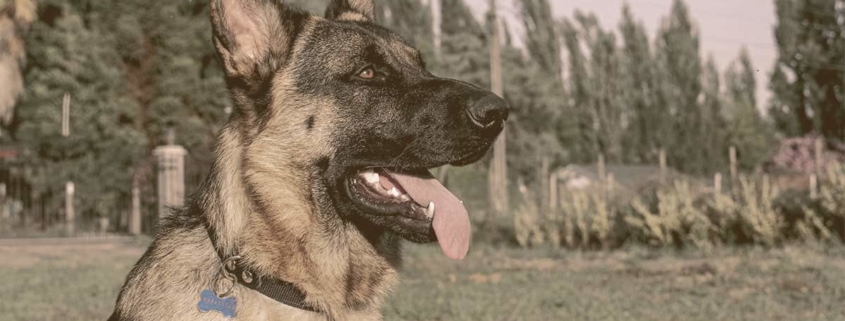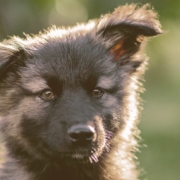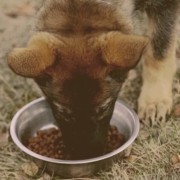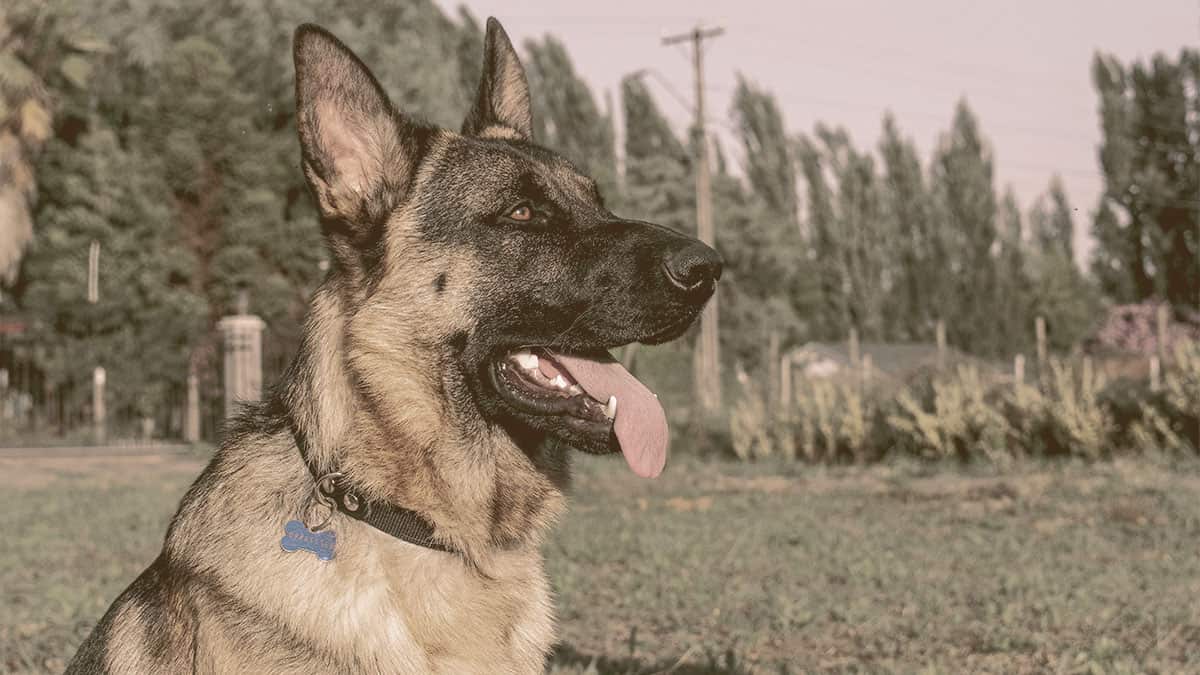
What Do German Shepherds Eat? Diet & Habits
Alex Vicente • Updated on August 1, 2023
- This review contains affiliate links. Read more here.
- Not a substitute for professional veterinary help.
Having been around since the 1800s, German Shepherds are a favorite of many.
They’re brilliant, have an amazing tracking ability, and are loyal to a fault.
If you recently got your first Shepherd and are just settling in, it may be time to ask, what do German Shepherds eat?
Luckily, this article will have you covered, revealing what’s better to feed your doggie and what to avoid to keep them happy and healthy.
Read on to find out more.
Table of Contents
What Do German Shepherds Eat?
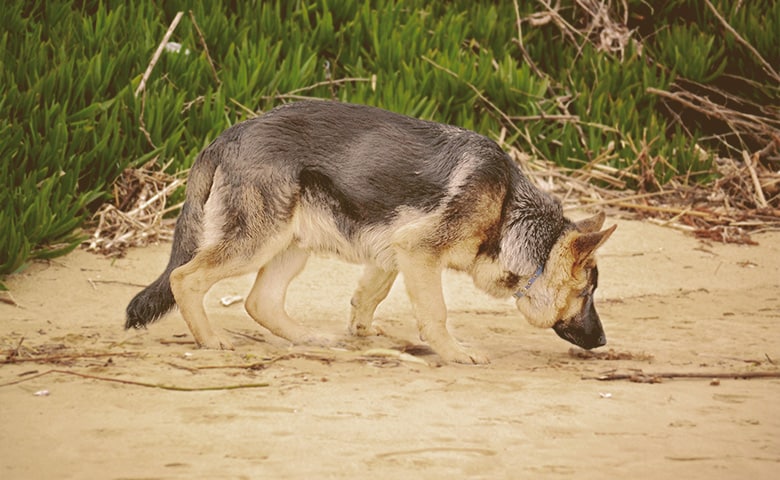
Like humans and other dogs, German Shepherd dogs need a well-balanced diet to stay healthy, strong, and energetic.
Proteins, carbohydrates, vitamins, and minerals are essential for your dog’s health and are integral to his diet.
GSDs can eat a wide variety of things, and since they can eat both animal and plant-based foods, this makes them omnivores.
This opens the door to a buffet of options you can feed your dog.
Here are all the essential foods your Shepherd needs.
Proteins
Considering how big GSDs can get and how full of energy they are, protein plays an essential role in their growth.
Puppies need a minimum of 22% protein in their diet, while adult dogs need about 18% to comply with their nutritional requirements.
Foods with high-quality animal-based protein sources are essential, as they:
- Regulate and provide energy for your GSD.
- Helps heal wounds faster.
- Improves the health of your dog’s hair, nails, and skin.
- Builds healthier muscles and restores their growth.
- Improves the GSD’s immunity overall.
Protein can be found in several sources, including but limited to:
- Birds, such as chicken, duck, and turkey.
- Eggs from those birds mentioned above.
- Meat from cattle, including cows, lamb, and pork.
- Fish, which includes tuna, salmon, and so on.
Protein can also be plant-based, in case you don’t want to feed your dog meet. There are many alternatives, such as:
- Tofu
- Chickpeas
- Peanuts
- Green beans
Some dry food alternatives have protein with other supplements, such as vitamins and minerals, to provide a balanced source of sustenance.
Dogs famously love peanut butter, and yes, you can feed it to your GSD.
However, many dog owners offer it as a treat, and it’s better not to feed it regularly.
Because peanut butter has a high sodium content, give it to your dog in moderation or use the unsalted version.
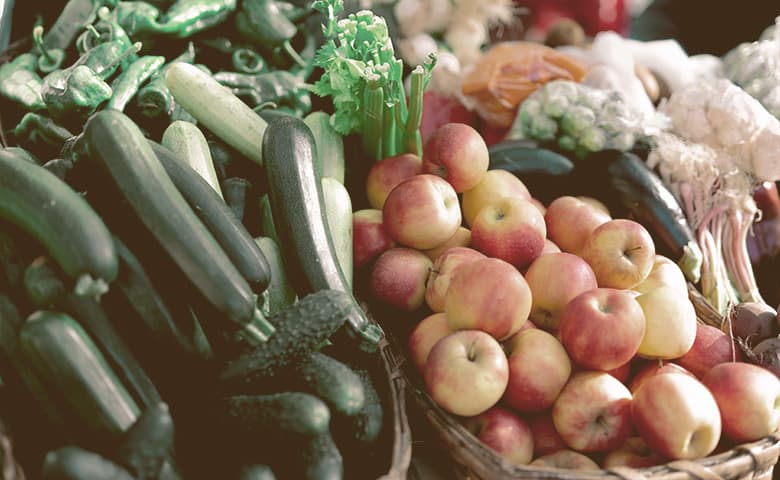
Fruits and Vegetables
GSDs can eat many vegetables, like beets, asparagus, artichoke, bell peppers, carrots, lettuce, potatoes, and more.
That being said, these vegetables would be better off cooked before handing them over to your canine friend, as they will help with digestion.
You can also feed fruits like apples, apricots, bananas, mango, watermelon, and strawberries to your GSD.
However, it’s worth noting that fruits’ pits or seeds are toxic to dogs, so remember to remove them before feeding one to your furry friend.
Avoid giving a full fruit at all costs.
Even though they provide doggies with vitamins, fruits and vegetables need to form only about 10% of their daily calorie intake.
So, make sure to feed them to your dog in moderation.
Dairy
You can feed your doggo some cheese and milk if you want; however, it’s better to do it in limited quantities.
That’s because puppies have an enzyme called Lactase that breaks down milk because they consume a lot of it when they’re young.
However, as they grow older, the enzyme dissipates, causing them to become lactose intolerant.
Monitor your GSDs after they drink milk or eat dairy products, and you’ll be able to know how sensitive he/she is toward dairy products.
Some dogs are okay with it, and some dogs can’t handle lactose.
Bones
Dogs stereotypically love gnawing on bones, and yes, you can give them one to sink their teeth into.
However, that bone must be bigger than their muzzle to keep them from swallowing it.
It’s a great source of fun. It also allows them to vent frustrations, and we can all agree that chewing on a bone is better than chewing on your furniture.
Plus, some dogs could use any distraction!
That being said, don’t offer chicken, pork, beef, or lamb bones if they’ve been cooked.
When these bones cook, they weaken and become soft, which leads to the possibility of them splintering or breaking.
This could be hazardous to the dog’s stomach.
You may also want to read:
German Shepherd Dog Breed Information: All You Need To Know
What Should I Not Feed My German Shepherd?
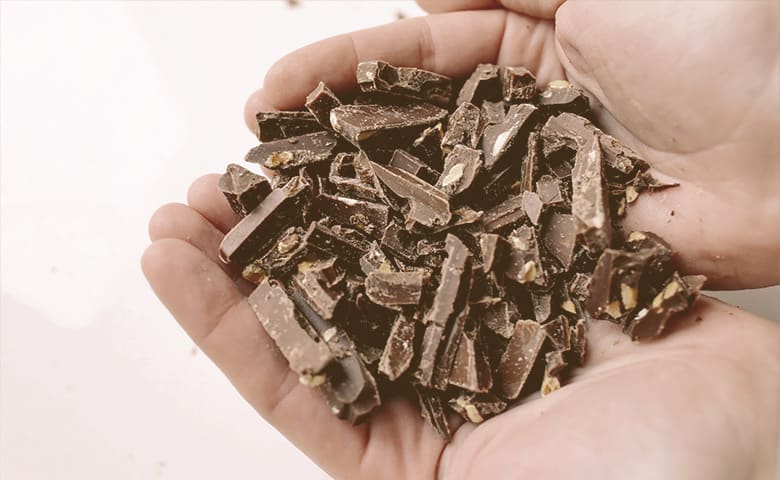
While there’s a big spectrum of foods GSDs can eat, there are still some items that need to be avoided at all costs.
These foods are considered toxic to GSD and dogs in general, and if your dog ingests any of them, it’s recommended that you contact your vet as soon as possible.
Chocolates, avocado, grapes, onion, garlic, raisins, walnuts, and macadamia nuts are dangerous for your dog will cause health problems, and could be fatal in some cases. Grapes and raisins, in particular, are notoriously toxic as they can cause acute kidney failure.
If you have any of the previously mentioned items, we recommend that you keep them in places where your dog can’t reach them, even if you’re not around.
It’s also recommended to avoid feeding your dog any raw meats, as that puts them in jeopardy and the risk of a bacterial infection like salmonella or E. Coli. You should consider cooking them to make sure they’re safe for consumption.
Final Words
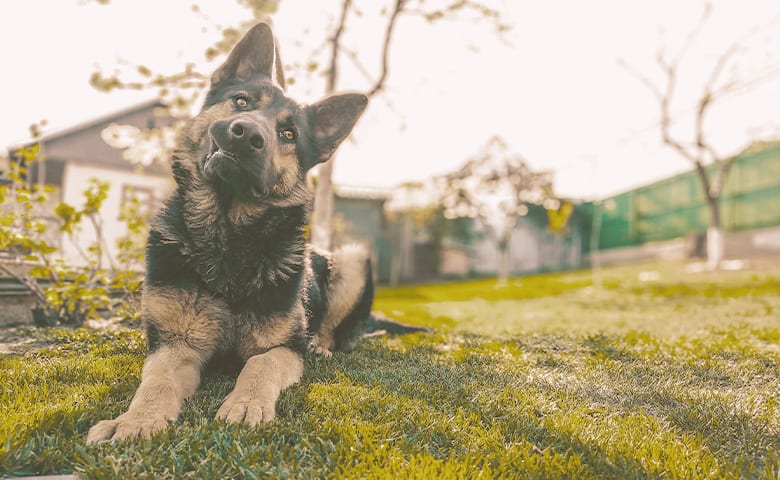
Apparently, there are so many things you can feed your doggo—just remember to avoid the foods that will hurt him either right now or in the long run.
Create a meal plan for your German Shepherd, and make sure that it’s a well-balanced one.
No matter what you decide to feed your dog, make sure that you’re providing them with what they need because dogs of varying ages have different nutritional requirements.
If you’re still unsure of what to feed them or worried that it might hurt them in any way, you can always talk to your vet and see what they recommend.

